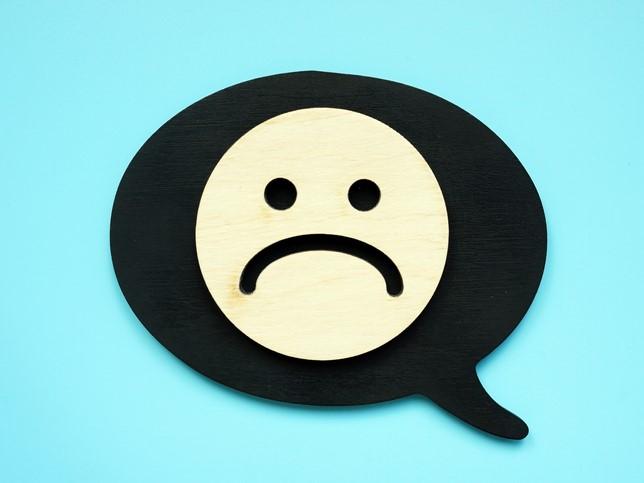Researchers can be very critical. Critical of others and critical of themselves. After all, critical thinking is a vital part of research. We question assumptions, challenge assertions and look for evidence. This allows us to find any limitations, weaknesses or flaws in the thinking.
All this begins in research training. At the beginning of a research degree or PhD, there is often an uncritical acceptance of the literature, but as we progress we learn to challenge more, and our ideas get challenged by supervisors and peers who point out the gaps in the logic and the weaknesses. We are developing a new way of thinking – critical thinking.
But we can learn it too well, and it becomes our dominant way of thinking. While it might be helpful in research, it’s not that useful when you start applying it more widely. Your partner or friends might not be too pleased having their flaws and limitations constantly pointed out. And your own self-esteem might not cope too well with such intense scrutiny.
- Don’t believe the hype: being an ECR needn’t be a lonely existence
- Bullying by supervisors is alive and well – now is the time to tackle it
- Three big mental health questions that academia must talk about
Am I working hard enough? Am I clever enough? Suddenly, it’s a critical circle. You’re critical of other researchers. Other researchers are critical of you. And, of course, you’re critical of yourself. There are not a lot of positives flying around. Peer review does not tend to be viewed as a pleasant experience. Rarely does reviewer number two say: “This is awesome. Publish it straight away.”
It doesn’t have to be like this. Critical thinking means looking for the evidence. That is evidence both for and against. But researchers often spend much of their time looking for the evidence against. Working for the prosecution. I sometimes describe researchers as killers or assassins; we are trained to seek and destroy. When a researcher is reviewing a paper, they may have one line that says: “This is overall quite good” followed by the word “but” and then three pages of detailed, negative comments. Good for rigour, but perhaps not so good for the person whose work is being shredded. And, of course, sometimes that person is going to be you.
This critical culture can be scary and unfriendly. It feels risky to put your ideas forward when you can be fairly sure they will be attacked. It’s intimidating to put up your hand and ask a question at a conference or in a meeting if you fear you will be ridiculed. You can fear taking risks or making mistakes because you know those mistakes will be highlighted.
Of course, you apply your critical thinking skills to yourself as well. You doubt yourself. How do I know if my ideas are any good? Maybe I’m not clever enough. Maybe I’ve not worked hard enough. No wonder researchers commonly experience impostor syndrome. There’s always that feeling you are just one mistake away from being exposed as a complete fraud.
It’s scary enough to ask a question, but even more risky to put your ideas in writing. Now, there in black and white, is documentary evidence of your inadequacies. With your name on it. Little wonder that writing is avoided at all costs. When you’ve had your hard-won, precious ideas and words shredded, you’re unlikely to volunteer for that sort of punishment again.
The person giving the feedback will say: “Don’t take this personally.” How else could you take it? Something you've worked on for months has just been demolished. You will take it personally. And probably develop a good case of writer’s block.
This sustained negativity puts a lot of pressure on our mental health. And sadly, in some extreme cases, critical thinking becomes a cover for bullying and belittling. Statements and behaviours that would not normally be acceptable are excused as academic rigour.
So should we throw out critical thinking? Of course not. We should just do it better. Critical thinking means looking at the evidence – all the evidence. The positives and the achievements as well as the weaknesses. This is where the concept of a critical friend is helpful. A critical friend is a person who is on your side, wanting you to succeed, supporting you and encouraging you. But they are also critical, pointing out the gaps or the weaknesses if need be. It’s possible to be both critical and kind at the same time.
Here are some other recommendations for breaking the cycle of criticism:
Watch your thinking. Are you locked into critical thinking? Do you do it accurately or just focus on the limitations?
Be generous to yourself. Acknowledge your achievements. Have a “brag file” – a collection of all the things that have gone well for you. When your paper is rejected or you receive some harsh criticism, you can balance things up with the counter-evidence.
Be generous to others. When you are providing feedback on a piece of writing or reviewing a journal article, remember there is a person behind those words. And a person who might not be in a good place at that moment.
Develop some flexible thinking styles. Occasionally, turn off the critical thinking part of your brain and allow your creative thinking or positive thinking brain to have a turn (especially when dealing with people).
Find a critical friend. This is someone you can trust who will give you honest and balanced feedback. You can do the same for them.
Hugh Kearns works with researchers and research groups around the world to improve their productivity and well-being. He is based in Adelaide, Australia, lectures and researches at Flinders University and runs ThinkWell.




comment